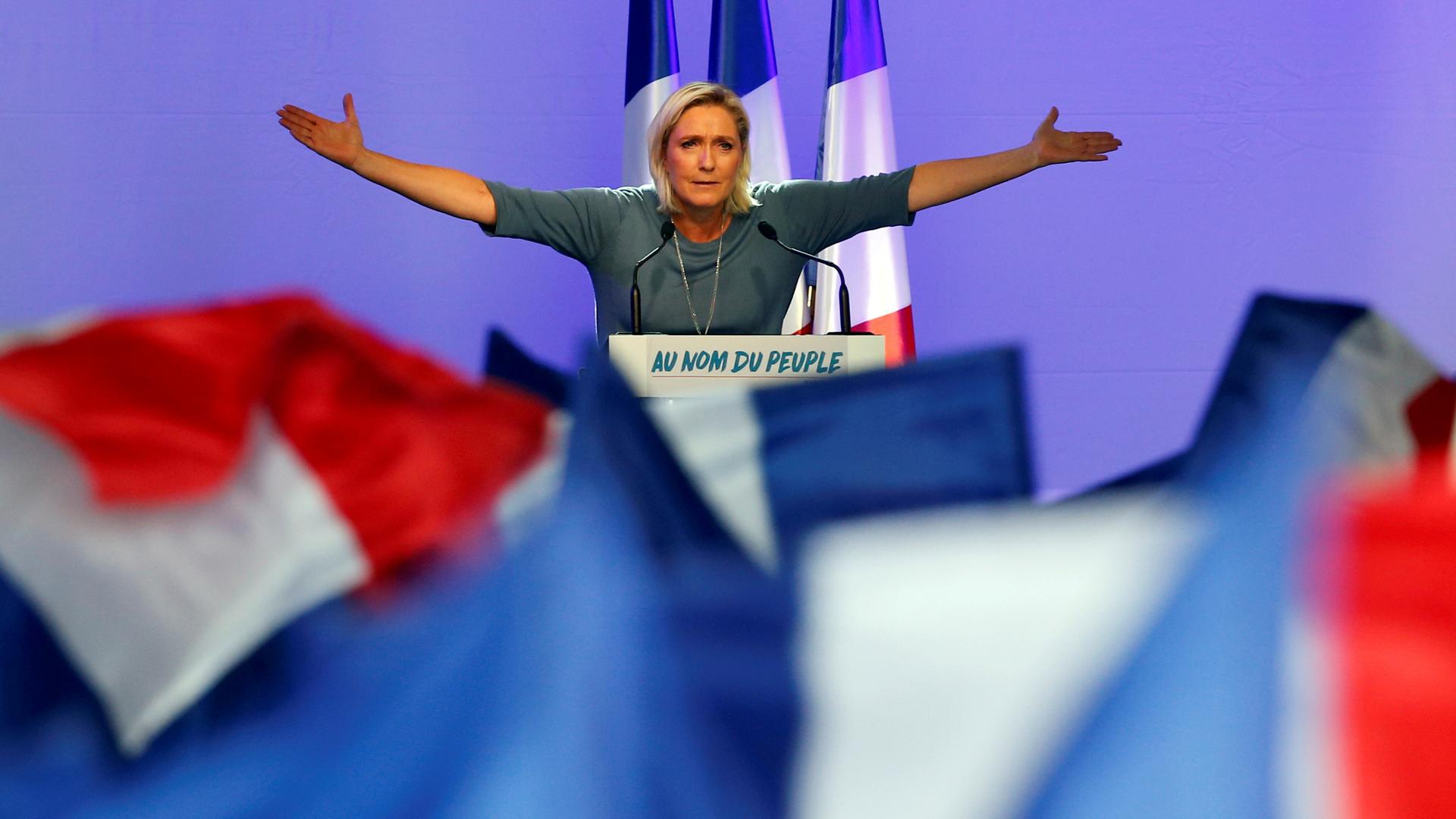Will France be next to elect a radical populist leader?
Marine Le Pen, French National Front leader, gestures during a rally
In France, President-elect Donald Trump’s victory this week has immediately provoked comparisons to the country’s own presidential contest — made both by the media and the French candidates themselves.
Following the US elections and, before that, the Brexit vote and regional victories by Germany’s far-right AFD-party, France is positioned as the next major referendum in Europe between progressive and rightist visions of their country.
The leader of the far-right National Front (FN) party, Marine Le Pen, held an upbeat press conference Wednesday, as she did after Brexit. She had actually weighed in on Twitter to congratulate the president-elect and the “free American people” shortly before the race was definitely called by American media.
Like Trump, Le Pen is a staunch opponent of immigration and globalization. She wants to eliminate France’s open borders with its European Union neighbors.
A potential challenger, former French President Nicolas Sarkozy — another of France’s most controversial politicians — is also claiming Trump's mantle.
An unorthodox thinker, often controversial, Sarkozy hopes he can also out-perform his poll numbers against a more "establishment" candidate. He’s lagged consistently behind another former prime minister, Alain Juppé, the current mayor of Bordeaux. Juppé is leading a joint center-right primary (the FN does not participate).
As with the final election, the primary will have a first round between all seven candidates on November 20. A run-off round between the two top vote-getters, likely Sarkozy and Juppé, would take place on November 27.
Interestingly, neither Sarkozy nor Le Pen have been outright supporters of Trump. While Le Pen endorsed Trump in July, in her rhetoric she leaned more toward "anyone but Hillary." But she has also been trying to reshape her party’s image to make it more palatable to a wider swath of the French electorate. She ejected her father, Jean Marie Le Pen from the party over his extreme statements.
Sarkozy was reported to have said to a private audience in March that he found Trump’s 30 percent support among Americans “terrifying,” calling him “vulgar.”
Sarkozy, who served as president between 2005 and 2012, is a polarizing figure in France, loathed by much of the French left. As many as 10 percent of left-identified voters say they will participate in the right-wing primaries, voting strategically for Juppé in anticipation of a run-off between the right’s candidate and Le Pen.
While there are other candidates on the sidelines on the French left, President Francois Hollande has become deeply unpopular in France over the extraordinary security situation and a weak French economy.
It is unusual and telling this year that the FN candidate is considered a serious contender for the French Ppresidency. Le Pen received 18 percent of votes in the first round of the 2012 French elections but failed to advance to the second.
But as French newpaper Liberation pointed out Thursday, Le Pen also faces a risk with Trump’s victory: As she tries to convince French voters of the plausibility of her party — long-considered extreme — leading the country, she could face backlash if his presidency begins chaotically.
Every day, reporters and producers at The World are hard at work bringing you human-centered news from across the globe. But we can’t do it without you. We need your support to ensure we can continue this work for another year.
Make a gift today, and you’ll help us unlock a matching gift of $67,000!
